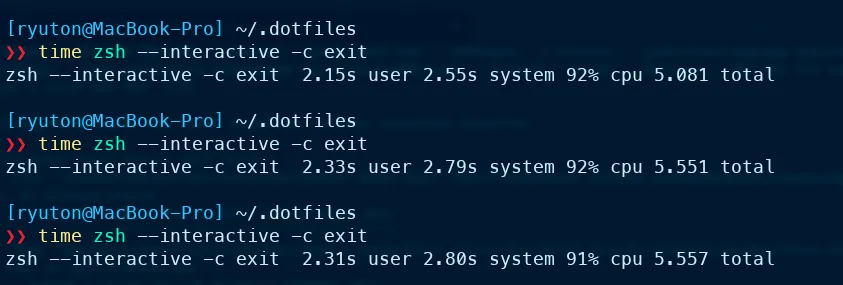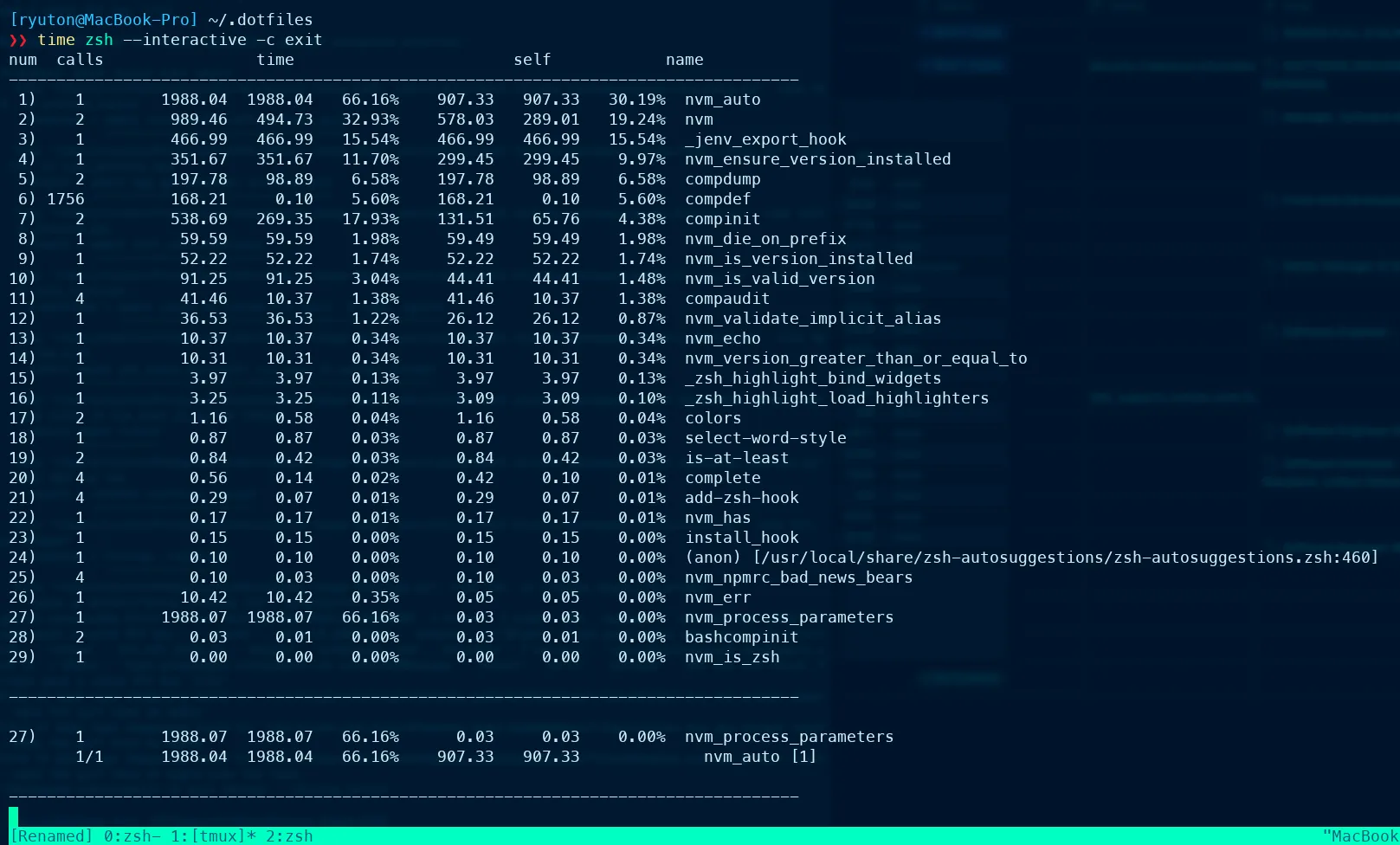Measuring Startup Performance
Before optimizing anything, you need to establish a baseline. Here’s how to measure your current Zsh startup time:
time zsh --interactive -c exitThis command will show you exactly how long it takes for Zsh to start up and immediately exit.

For a more detailed breakdown of what’s slowing down your startup, add profiling to your ~/.zshrc:
# Add this as the FIRST line in your ~/.zshrc
zmodload zsh/zprof
# ... your existing configuration ...
# Add this as the LAST line in your ~/.zshrc
zprofAfter adding these lines, open a new terminal session. You’ll see a detailed report showing which functions and processes are consuming the most time during startup.

Common Performance Culprits and Solutions
Node Version Manager (NVM)
The Problem: NVM is notorious for adding 1-3 seconds to Zsh startup time due to its initialization process.
The Solution: Replace NVM with Fast Node Manager (fnm), a Rust-based alternative that’s significantly faster.
Install Fnm
Schniz/fnm: 🚀 Fast and simple Node.js version manager, built in Rust
brew install fnm# Fast Node Manager (fnm)
# @see https://github.com/Schniz/fnm
eval "$(fnm env --use-on-cd --shell zsh)"Reference: Fix slow ZSH startup due to NVM
Java Environment Manager (jenv)
In my case, I simply deleted the setting for now. I might need to deal with it later.
Zsh Completion System (compinit)
The Problem: Zsh’s completion system checks for new completions on every startup, which can be slow.
The Solution: Optimize compinit to only rebuild the completion cache once per day:
# Speed up compinit by checking cache only once daily
autoload -Uz compinit
for dump in ~/.zcompdump(N.mh+24); do
compinit
done
compinit -CReferences:
Result
5.2s -> 0.78s


